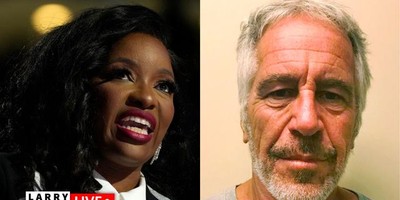In reality, it is prostitution prohibitionists such as Kristof who make the occupation unreasonably dangerous by creating a black market in which vendors are subject to theft and assault without legal recourse. Kristof is hardly unique in avoiding responsibility by casting blame on others. Here are some other memorable examples from the past year:
--Surveillance switch. In a speech last January, President Barack Obama expressed concern about the National Security Agency's mass collection of telephone records. He worried that the database "has never been subject to vigorous public debate" and that "without proper safeguards, this type of program could be used to yield more information about our private lives and open the door to more intrusive bulk collection programs." Yet it was Obama who approved the program and kept it secret, thereby preventing a public debate. The president did not perceive the NSA's phone record dragnet as a serious threat to privacy until months after it was revealed by leaks he condemned.
--Righteous wrath. Rep. Michael Grimm, R-N.Y., who last week pleaded guilty to tax evasion after proclaiming his innocence and this week announced his resignation after insisting he would not resign, eventually apologized to Michael Scotto, the NY1 reporter whom he threatened to "break ... in half" and throw from a Capitol balcony after Scotto asked about an investigation into Grimm's fundraising practices. But at first, Grimm blamed Scotto for the outburst, saying, "I was extremely annoyed because I was doing NY1 a favor by rushing to do their interview."
Recommended
--Pot of trouble. After President Obama observed, in a January interview with The New Yorker, that marijuana is less dangerous than alcohol, CNN's Jake Tapper asked him whether he was open to reclassifying marijuana, which is currently a Schedule I drug, a category supposedly reserved for substances with no accepted medical applications that have a high potential for abuse and cannot be used safely, even under a doctor's supervision. "What is and isn't a Schedule I narcotic is a job for Congress," Obama replied. "It's not something by ourselves that we start changing. No, there are laws undergirding those determinations." That last part is true, but those laws -- in particular, the Controlled Substances Act -- allow the executive branch to reschedule drugs without new legislation.
--Hidden hazards? Last July, a Florida jury decided that R.J. Reynolds should pay $23 billion in punitive damages to Cynthia Robinson, the widow of a smoker who died of lung cancer in 1996. The jurors evidently were swayed by evidence indicating that R.J. Reynolds executives questioned the hazards and addictiveness of cigarettes in public while acknowledging them in private. Yet anyone who began smoking in the 1970s and continued smoking for the next two decades, as Robinson's husband did, voluntarily assumed the well-known risks associated with the habit. Nothing R.J. Reynolds said or failed to say changes that reality, because it is impossible to conceal common knowledge, no matter how much the tobacco companies may have wished otherwise.
--Baby burners. Last May, an early-morning SWAT raid in Habersham County, Georgia, left a toddler horribly burned by a flash-bang grenade tossed into his crib. Police, who were looking for a meth dealer in the wrong place, said they had no idea that children were living in the house -- a fact that even the most cursory surveillance would have revealed. A grand jury later faulted the cops for a "hurried" and "sloppy" investigation. But Habersham County Sheriff Joey Terrell said responsibility for the botched operation actually lies with someone who was not even there. "The person I blame in this whole thing," Terrell said the day after the raid, "is the person selling the drugs."

























Join the conversation as a VIP Member